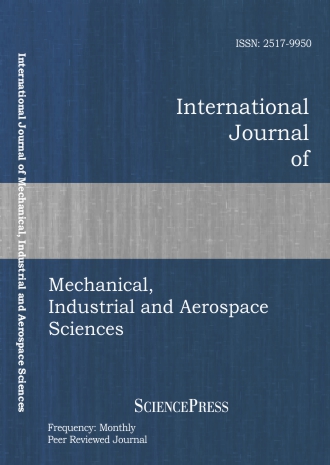
Scholarly
Volume:6, Issue: 8, 2012 Page No: 1368 - 1374
International Journal of Mechanical, Industrial and Aerospace Sciences
ISSN: 2517-9950
Effects of Dopant Concentrations on Radiative Properties of Nanoscale Multilayer with Coherent Formulation for Visible Wavelengths
Semiconductor materials with coatings have a wide range of applications in MEMS and NEMS. This work uses transfermatrix method for calculating the radiative properties. Dopped silicon is used and the coherent formulation is applied. The Drude model for the optical constants of doped silicon is employed. Results showed that for the visible wavelengths, more emittance occurs in greater concentrations and the reflectance decreases as the concentration increases. In these wavelengths, transmittance is negligible. Donars and acceptors act similar in visible wavelengths. The effect of wave interference can be understood by plotting the spectral properties such as reflectance or transmittance of a thin dielectric film versus the film thickness and analyzing the oscillations of properties due to constructive and destructive interferences. But this effect has not been shown at visible wavelengths. At room temperature, the scattering process is dominated by lattice scattering for lightly doped silicon, and the impurity scattering becomes important for heavily doped silicon when the dopant concentration exceeds1018cm-3 .